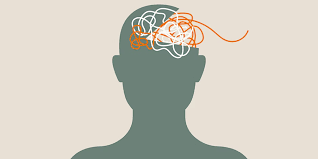ADHD is a neurodevelopmental disorder characterized by symptoms of inattention, hyperactivity, and impulsivity. It impacts persons of all ages, frequently causing difficulties in different areas of life, such as academic, social, and occupational performance. Although ADHD can present substantial challenges, it is not unusual for individuals with ADHD to also have co-occurring conditions, which is referred to as dual diagnosis or comorbidity. The presence of these concurrent diseases can worsen the symptoms of ADHD and make treatment methods more complex, underscoring the significance of thorough evaluation and customized management measures.
Analyzing the Overlap between ADHD and Co-occurring Disorders:
ADHD is seldom found without any other accompanying conditions. Studies indicate a significant occurrence of comorbidities in individuals diagnosed with ADHD, with over two-thirds of children and adults with ADHD having at least one other psychiatric condition. Some of the most often linked diseases include anxiety disorders, mood disorders (such as depression and bipolar disorder), oppositional defiant disorder (ODD), conduct disorder (CD), and substance use disorders (SUDs).
The intricate interaction between ADHD and these comorbid conditions can emerge in diverse ways. Individuals who have ADHD and also experience comorbid anxiety may face challenges related to increased levels of anxiety and trouble focusing, which can further hinder their ability to function efficiently. Likewise, the combination of ADHD and depression can result in a sense of despair and less enthusiasm for activities, intensifying the difficulties related to ADHD symptoms.
Addressing ADHD in the Context of Co-occurring Disorders:
To effectively manage ADHD in patients with dual diagnosis, a comprehensive and integrated approach is necessary. This approach should address both diseases simultaneously. Crucial components of effective management comprise:
Precise Evaluation:
A comprehensive assessment conducted by competent mental health experts is crucial for the identification and diagnosis of both ADHD and any accompanying disorders. This evaluation should include clinical interviews, standardized rating scales, and an examination of the individual’s developmental history, family dynamics, and environmental factors.
Individualized Treatment Planning:
Treatment plans should be customized to specifically target the distinct requirements and difficulties presented by the concurrent presence of ADHD and co-occurring disorders. This may entail utilizing a blend of pharmaceutical therapies, such as stimulant drugs for ADHD and antidepressants or anxiolytics for mood and anxiety disorders, in addition to psychotherapy modalities including cognitive-behavioral therapy (CBT) and dialectical behavior therapy (DBT).
Psychoeducation and Skill Building:
Providing individuals and their families with knowledge on ADHD and co-occurring disorders can facilitate comprehension, diminish social disapproval, and encourage compliance with treatment suggestions. In addition, providing instruction in practical coping skills, organizing strategies, and stress management approaches can empower individuals to more effectively handle their symptoms and enhance their overall functioning.
Collaborative Care:
It is crucial to coordinate care among a variety of experts with different specialties, such as psychiatrists, psychologists, therapists, educators, and primary care physicians, in order to provide comprehensive therapy. Collaboration guarantees that every aspect of the individual’s welfare is taken into account, facilitates communication among providers, and fosters the seamless provision of care across various environments.
Monitoring and adjustment:
It is crucial to regularly check the progress of treatment and the intensity of symptoms in order to assess the effectiveness of therapies and make any required changes as time goes on. The ability to adapt treatment plans enables individualized adjustments according to individual reactions and evolving clinical requirements.
Issues and Factors to Consider in the Management of Dual Diagnosis:
Addressing the simultaneous presence of ADHD and other disorders has distinctive difficulties and factors to take into account, such as:
Differential Diagnosis:
Differentiating between symptoms of ADHD and those caused by comorbid illnesses can be intricate, necessitating meticulous clinical assessment and evaluation of overlapping symptomatology. Failure to correctly diagnose or recognize coexisting medical conditions might lead to less than ideal treatment results and worsening of symptoms.
Treatment resistance can occur in individuals with dual diagnosis, as they may have a complex clinical presentation that makes them less susceptible to typical therapy. It is crucial to address underlying problems such as not following treatment, substance abuse, or psychological stressors in order to improve treatment results.
The presence of ADHD is correlated with a heightened susceptibility to substance use disorders, especially in the adolescent and adult populations. People with ADHD may resort to self-administering drugs or alcohol as a means to ease symptoms or manage coexisting emotional challenges. This can complicate treatment endeavors and need comprehensive therapies that address both ADHD and substance abuse.
The long-term prognosis and functional outcomes of individuals with ADHD can be affected by the presence of co-occurring illnesses. Timely recognition, intervention, and continuous assistance are crucial for reducing the possible negative consequences of dual diagnosis on scholastic performance, job prospects, social connections, and general well-being.
In conclusion:
ADHD and dual diagnosis provide a complicated therapeutic problem that necessitates a thorough evaluation and customized strategies for treatment. Clinicians can improve treatment effectiveness and outcomes for individuals with ADHD and co-occurring disorders by acknowledging their interconnected nature and using an integrated approach that includes pharmacological, psychotherapeutic, and psychosocial interventions. Furthermore, it is essential to encourage cooperation among healthcare professionals, advance the dissemination of knowledge about mental health and the development of skills, and actively support early intervention and ongoing assistance in order to effectively address the complex requirements of individuals with ADHD and co-occurring conditions. These measures ultimately contribute to enhancing their overall well-being and quality of life.

